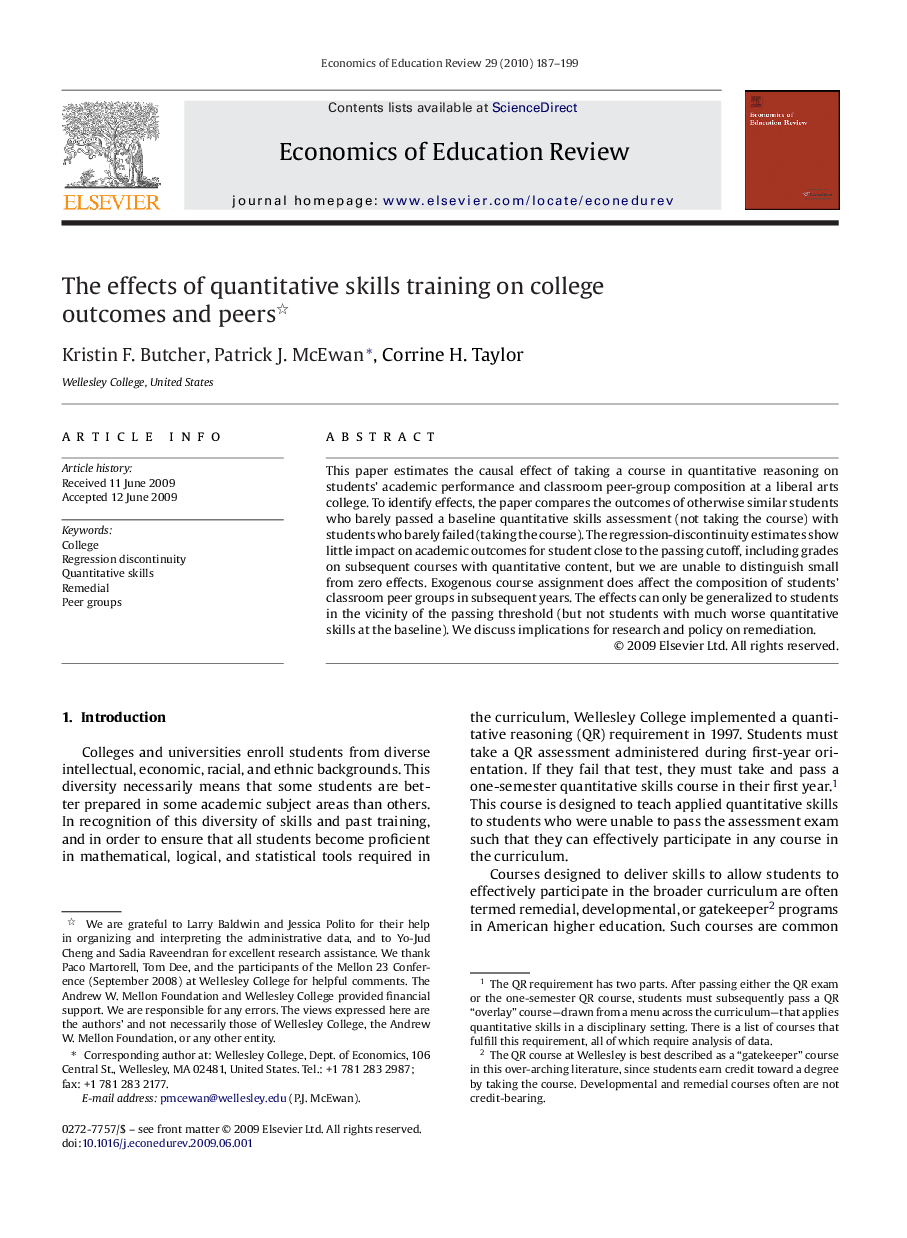| Article ID | Journal | Published Year | Pages | File Type |
|---|---|---|---|---|
| 354811 | Economics of Education Review | 2010 | 13 Pages |
This paper estimates the causal effect of taking a course in quantitative reasoning on students’ academic performance and classroom peer-group composition at a liberal arts college. To identify effects, the paper compares the outcomes of otherwise similar students who barely passed a baseline quantitative skills assessment (not taking the course) with students who barely failed (taking the course). The regression-discontinuity estimates show little impact on academic outcomes for student close to the passing cutoff, including grades on subsequent courses with quantitative content, but we are unable to distinguish small from zero effects. Exogenous course assignment does affect the composition of students’ classroom peer groups in subsequent years. The effects can only be generalized to students in the vicinity of the passing threshold (but not students with much worse quantitative skills at the baseline). We discuss implications for research and policy on remediation.
